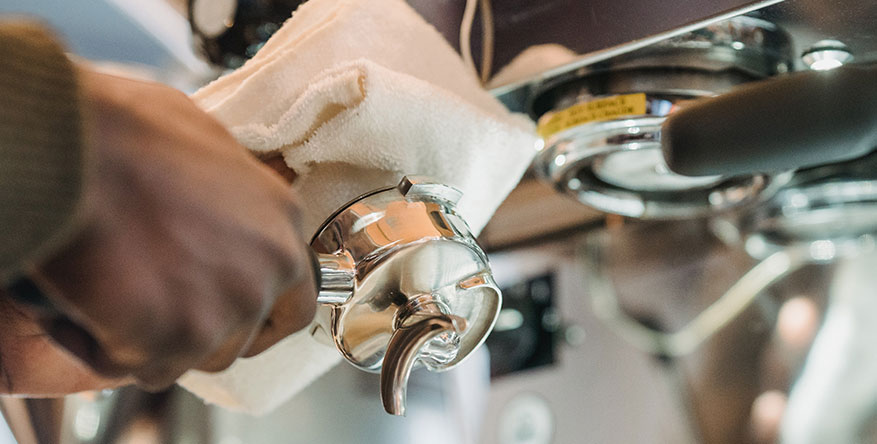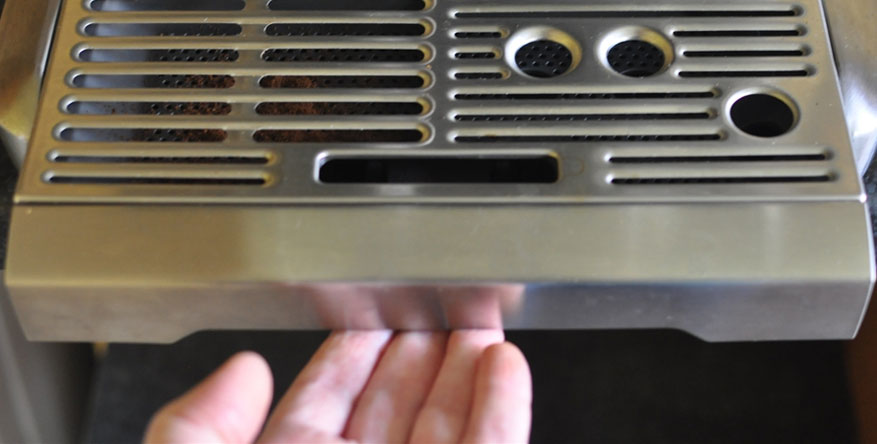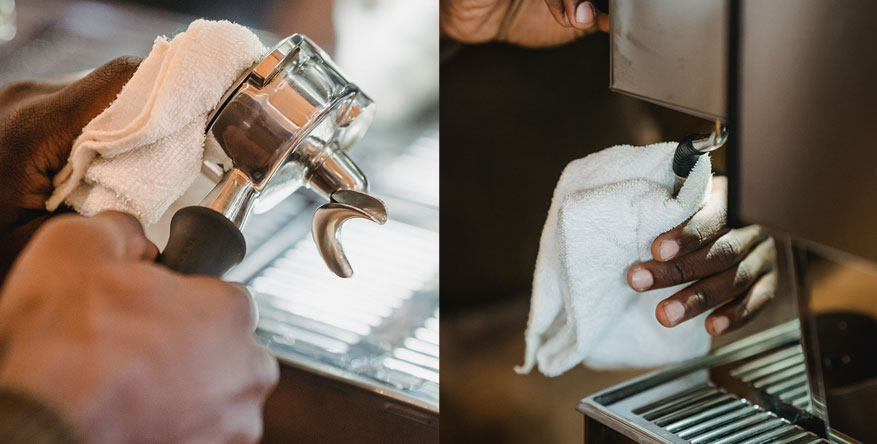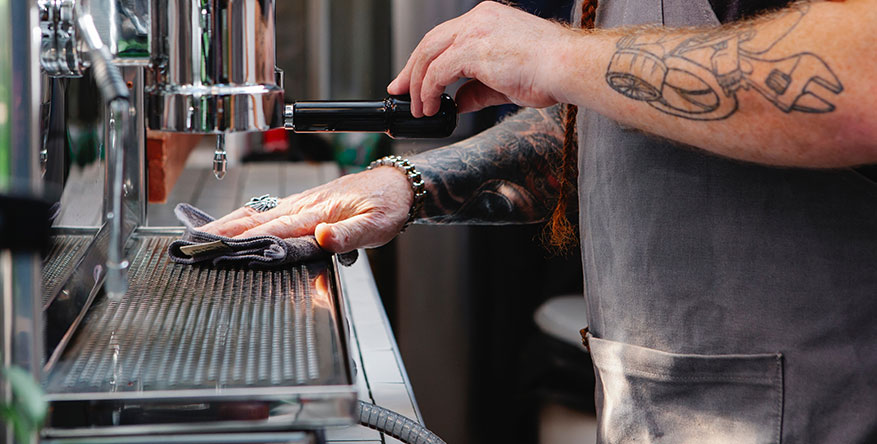Keeping your commercial coffee machine in prime condition is pivotal for its performance, longevity, and the quality of coffee it produces. In this comprehensive guide, we will delve into the essential steps for your commercial coffee machine cleaning and maintaining, ensuring its optimal operation over time.
Importance of Coffee Machine Cleaning and Maintenance

Regular cleaning and maintenance of your commercial coffee machine yield numerous advantages:
· Flavour Consistency: A clean machine prevents the carryover of old coffee grounds or oils, preserving the true flavour of freshly brewed coffee.
· Machine Longevity: Proper maintenance extends the lifespan of your coffee machine, reducing the need for repairs or replacements.
· Health and Safety: A clean machine safeguards against mould, bacteria, and contaminants that could compromise customer health and safety.
· Efficiency: A well-maintained machine operates more efficiently, minimizing downtime and enhancing overall productivity.
Coffee Machine Cleaning Routine
While each coffee machine model demands a specific cleaning routine, choosing a coffee machine supplier that offers training and maintenance support when buying, renting, or leasing a commercial coffee machine is vital to avoid disruptions and downtime. While procedures may vary depending on the model, the following basic cleaning routines apply to most machines:
· Empty the Drip Tray and Grinds Bin: Remove the drip tray, disposing of any liquids. Follow machine-specific instructions to access and clean the coffee grounds bin, which tends to accumulate moisture and grounds that can lead to unpleasant odours and mould growth.
(Note: Instant Coffee Machines do not produce coffee bean grounds and therefore do not require emptying the bin.)

· Wipe Down Exterior Surfaces: Use a damp cloth to wipe down the machine’s exterior surfaces. For traditional barista coffee machines, including steam wands, group heads, and control panels, ensure thorough cleaning to eliminate spilled coffee or milk residue.
(Note: Barista coffee machines require additional cleaning of group heads. Remove portafilters and use a nylon brush to clean the gaskets and shower screens, as these areas can accumulate coffee grounds.)

Deep Cleaning and Professional Servicing
All commercial coffee machines necessitate periodic deep cleaning and professional servicing. While capsule and bean-to-cup machines may be simpler, those designed for commercial settings feature complex systems requiring meticulous care. Opting for a servicing contract with your coffee machine supplier is recommended due to the laborious and time-consuming nature of the professional cleaning process.
For establishments with shifting staff, proper training is crucial, as improper cleaning can harm equipment. A reliable supplier should provide comprehensive training alongside the purchase, lease, or rental of the coffee machine.
Key Deep Cleaning Tasks Include:
· Backflushing: For espresso machines with 3-way solenoid valves, perform backflushing to remove coffee oils and residue from group heads.
· Clean Portafilters and Baskets: Soak these in warm water with a commercial espresso machine cleaner, gently scrubbing to remove coffee oils and grounds.
· Steam Wand Cleaning: Remove steam wand tips, soak in warm water, and clean thoroughly with a steam wand brush.
· Descaling: Use a descaling solution to eliminate mineral deposits from the boiler and internal components.
· Replace Water Filters: Follow manufacturer recommendations for regularly replacing water filters to maintain high water quality for brewing.
Professional technicians can conduct comprehensive inspections, replace worn parts, and ensure optimal machine performance.
Conclusion
Sustaining a clean and high-functioning commercial coffee machine is essential for delivering consistent, top-notch coffee to customers. By establishing a cleaning routine and scheduling periodic professional servicing, you can ensure that your coffee machine continues to serve you effectively for years to come. Remember, a little maintenance today translates to better coffee and substantial cost savings in the long run.

